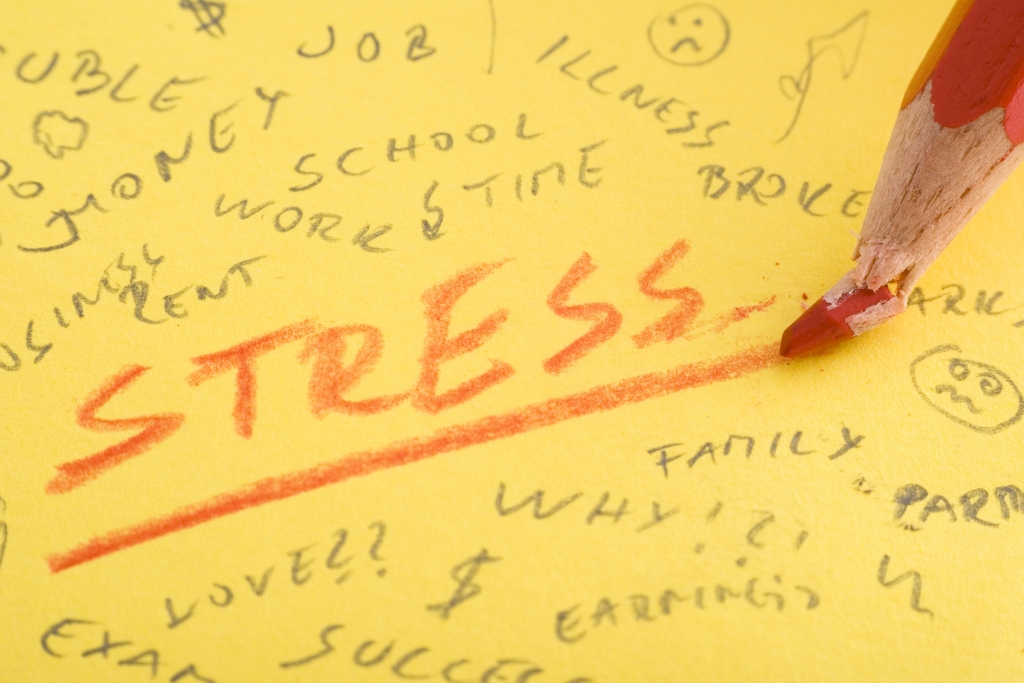 I’m going to go out on a limb here and guess that you’ve been stressed about money … at least once.
I’m going to go out on a limb here and guess that you’ve been stressed about money … at least once.Bottom line – money gives us better choices. Money impacts almost everything in our lives from the food we buy, to the car we drive, the house we live in, vacations, clothes… But what we don’t like to admit (or acknowledge) is how much money (and especially debt) can actually affect our health.
Not sleeping due to worrying about money is a common thread with clients that come to me for advice and mentoring. It’s been proven that people who suffer from high stress due to debt were much more likely to suffer from health problems than those who weren’t dealing with money troubles.
Stress; it can be a helpful and powerful motivator in your life, especially if you have a deadline that you need to meet and you are accountable for getting it done. However, most of the stress in our lives is the negative kind. We’re worried about relationships, our careers, our community, and about half are worried about money.
This can be stress over paying your bills, saving for the future, or even having enough to buy groceries.Worrying can lead to health issues.
Smoking, drinking, overeating, insomnia can all be symptoms of money stress. When you’re living paycheck to paycheck or trying to get out from under debt, most of your money typically goes to putting a roof over your head and food in your tummy.
You are cutting corners where you can. There’s not a lot left over for other aspects of life, including self-care.
So it either gets neglected or you put self care on your credit card because you are tired of going without. You tell yourself… “I’ve worked hard and I deserve it! I’ll worry about how to pay for it later.” … which ironically causes more stress.
Are you feeling stuck? Is your health suffering? Are you in debt? If so, here are some steps to help you get out of your money rut and move towards what you want:
1. Stop the denial. Are you living within your means? If you are using credit cards for all your “extra” purchases each month, you must first recognize that you have a problem.
2. Keep a log of your progress. Write down your goal in a notebook. Keep a log of each day of what you spend… “Know Your Numbers” (KYN), or use an online system at www.mint.com.
3. Are you having a hard time getting started? Pick one area of your money, spending is a good place. Commit to a plan to save a certain amount each month or cut down on groceries or ‘miscellaneous items’.
4. Build on your small wins and successes. Continue to take baby steps and set goals. (Ask yourself; “What do I want?”)
5. Find a role model. Choose someone who has excelled at your goal and use her to motivate you. (wink!)
6. Think about the benefits of what you’re doing, not the negatives. If you are choosing to spend less, then focus on why you are saving the money. That is why it is important to have a plan. Remind yourself of the benefits of reaching your goal when you want to quit or when you don’t feel like starting in the first place.
7. Use positive self-talk. If you notice yourself getting down again, be aware of how you’re talking to yourself… what’s the story you are believing? You may be telling yourself negative things. Consider whether you would tell a friend in your situation those same things. Talk positively to yourself. Encourage yourself as you would a good friend.
8. Ask for help when you get discouraged. Call a friend or a family member. Call me! It doesn’t matter who you turn to, just reach out to someone you know will be supportive.
When things get tough, you can always start small. Those tiny steps add up over time. And remember, it’s hard for some of you to do by yourself, so don’t be afraid to ask for help.
Call me for a complimentary appointment. I get it, I’ve been there… you will not find judgement from me. Don’t wait until it’s too late, you deserve to be happy and healthy, do it for yourself.
With much love,
Shari
xo
